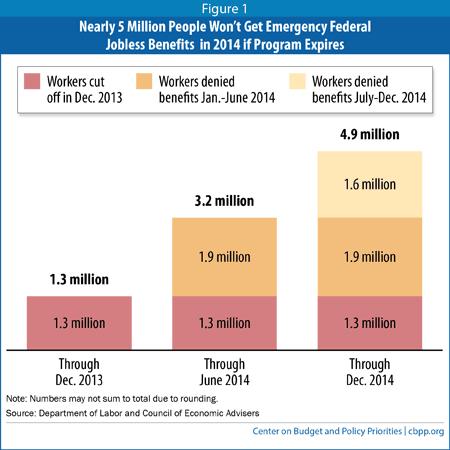
By Alan Bean
The Bipartisan Budget Act of 2013 is just what it claims to be: a bipartisan bill. Which means the legislation gives neither party all of what it wanted. Liberals and conservatives are lamenting the deficiencies of the bill, but most analysts realize that a meet-in-the-middle compromise is superior to the only practical alternative: another year at loggerheads.
That said, the bill kicks many cans down the road, and the fate of the 1 million people who will stop receiving unemployment benefits shortly after Christmas is chief among them. By March, an additional 2 million Americans will lose their benefits if nothing is done. In essence, this legislation creates short-term consensus by ignoring the big questions. Bread for the World president David Beckmann does a good job of identifying the key issues:
Though it is a good first step, the act is not perfect. It leaves more than 1 million unemployed workers without benefits before the year’s end. Congress should address this immediately.
Ultimately, Congress needs to address the entire sequester and resolve long-term budget issues. Congress must put the country on a fiscally sustainable path, and not leave struggling families out in the cold.
The Budget Act of 2013 sets top-line discretionary spending levels for fiscal year 2014 at $1.012 trillion, and at $1.104 trillion for FY 2015. It replaces much of the 2014 sequester, and some of the 2015 sequester, due to a combination of cuts to mandatory spending programs and increased fees.
There are no provisions to extend emergency unemployment rates, which are due to expire on Dec. 31, 2013. This will leave more than 1 million workers without benefits the week after Christmas, and an additional 2 million people will lose benefits by the end of March.
